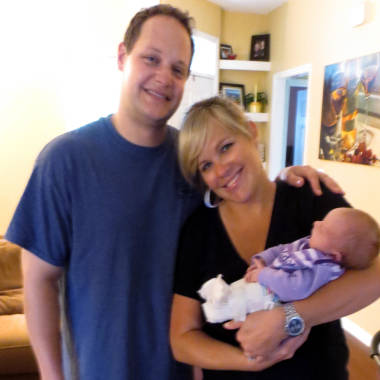
Other experts said that most consumers in the individual market will
not be able to keep their policies. Nancy Thompson, senior vice
president of CBIZ Benefits, which helps companies manage their employee
benefits, says numbers in this market are hard to pin down, but that
data from states and carriers suggests “anywhere from 50 to 75 percent”
of individual policy holders will get cancellation letters. Kansas
Insurance Commissioner Sandy Praeger, who chairs the health committee of
the National Association of Insurance Commissioners, says that estimate
is “probably about right.” She added that a few states are asking
insurance companies to cancel and replace policies, rather than just
amend them, to avoid confusion.
A spokesman for America’s Health
Insurance Plans (AHIP), an insurance trade association, also said the 50
to 75 percent estimate was consistent with the range they are hearing.
Those getting the cancellation letters are often shocked and unhappy.
George Schwab, 62, of North Carolina, said he was "perfectly happy"
with his plan from Blue Cross Blue Shield, which also insured his wife
for a $228 monthly premium. But this past September, he was surprised to
receive a letter saying his policy was no longer available. The
"comparable" plan the insurance company offered him carried a $1,208
monthly premium and a $5,500 deductible.
And the best option he’s found on the exchange so far offered a 415 percent jump in premium, to $948 a month.
"The deductible is less," he said, "But the plan doesn't meet my needs. Its unaffordable."
"I'm
sitting here looking at this, thinking we ought to just pay the fine
and just get insurance when we're sick," Schwab added. "Everybody's
worried about whether the website works or not, but that's fixable.
That's just the tip of the iceberg. This stuff isn't fixable."
Heather Goldwater, 38, of South Carolina, is raising a new baby while
running her own PR firm. She said she received a letter last July from
Cigna, her insurance company, that said the company would no longer
offer her individual plan, and promised to send a letter by October
offering a comparable option. So far, she hasn't received anything.
"I'm completely overwhelmed with a six-month-old and a business,” said
Goldwater. “The last thing I can do is spend hours poring over a website
that isn't working, trying to wrap my head around this entire health
care overhaul."
Goldwater said she supports the new law and is
grateful for provisions helping folks like her with pre-existing
conditions, but she worries she won’t be able to afford the new
insurance, which is expected to cost more because it has more benefits.
"I'm jealous of people who have really good health insurance," she said.
"It's people like me who are stuck in the middle who are going to get
screwed."
Richard Helgren, a Lansing, Mich., retiree, said he
was “irate” when he received a letter informing him that his wife Amy's
$559 a month health plan was being changed because of the law. The plan
the insurer offered raised his deductible from $0 to $2,500, and the
company gave him 17 days to decide.
The higher costs spooked him
and his wife, who have painstakingly planned for their retirement years.
"Every dollar we didn't plan for erodes our standard of living,"
Helgren said.
Ulltimately, though Helgren opted not to shop through the ACA
exchanges, he was able to apply for a good plan with a slightly lower
premium through an insurance agent.
He said he never believed President Obama’s promise that people would be able to keep their current plans.
"I
heard him only about a thousand times," he said. "I didn't believe him
when he said it though because there was just no way that was going to
happen. They wrote the regulations so strictly that none of the old
polices can grandfather."
For months, Laszewski has warned that
some consumers will face sticker shock. He recently got his own notice
that he and his wife cannot keep their current policy, which he
described as one of the best, so-called "Cadillac" plans offered for
2013. Now, he said, the best comparable plan he found for 2014 has a
smaller doctor network, larger out-of-pocket costs, and a 66 percent
premium increase.
“Mr. President, I like the coverage I have," Laszweski said. "It is the best health insurance policy you can buy."

No comments:
Post a Comment